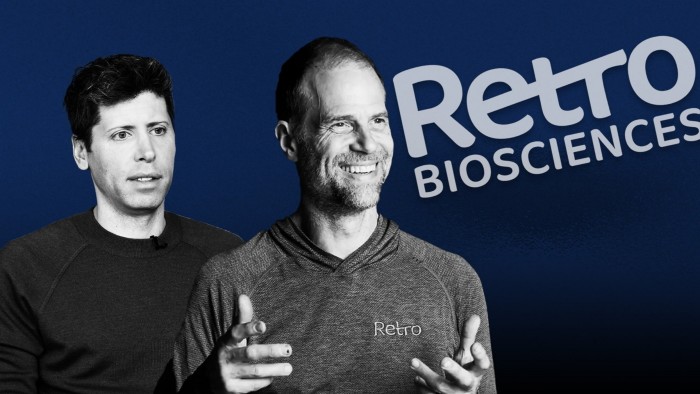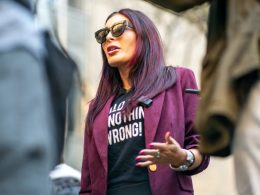Unlock the Editor’s Digest for free
Roula Khalaf, Editor of the FT, selects her favourite stories in this weekly newsletter.
Retro Biosciences is raising a $1bn round to fund the artificial intelligence-powered biotech’s mission to increase human lifespan by a decade, starting by getting its first drug into trials this year.
OpenAI chief executive Sam Altman, who provided the initial $180mn to seed the start-up, will put in more money in the series A. The company is in talks with family offices, venture capitalists, and sovereign wealth funds, as well as a US “hyperscaler” data centre to provide computing power to run the AI models it uses to create and test its treatments.
In partnership with OpenAI, the start-up has built a bespoke AI model that designs proteins to temporarily turn regular cells into stem cells, which it says can reverse their ageing process.
The San Francisco-based biotech will use the money to fund clinical trials for three drugs, including a potential treatment for Alzheimer’s disease, which will be tested in an early stage study in Australia this year. It is also working on drugs for rejuvenating blood and brain cells.
Joe Betts-LaCroix, Retro Biosciences’ chief executive and a close confidant of Altman who has previously sold companies to Google and biotech Recursion, said his goal is to “reduce human misery”.
“Right now if someone gets Alzheimer’s, it doesn’t matter what your resources are. You know, if you’re like Joe Biden, or Elon [Musk], or whoever, you can write as big a cheque as you want to anybody and nobody knows how to cure it,” he told the Financial Times.
Silicon Valley leaders including the Google co-founders and Amazon chief executive Jeff Bezos have invested in companies aiming to extend human life, or healthspan: the number of years people can live healthy lives.
Isomorphic Labs, the drug discovery start-up owned by Google, will have an AI-designed drug in trials by the end of this year, its founder Sir Demis Hassabis said this week.
Bezos-backed Altos had the largest ever biotech fundraising, raising $3bn in 2022. Betts-LaCroix said Altos has “brilliant minds” and “admirable, longer range research goals” but he said he and Altman both come from the tech accelerator Y Combinator and so they have a “very fast paced, action-oriented, target-centric mindset”.
Sandro Salsano, an Italian financier who runs a family office based in Panama, is leading the fundraising and has joined Retro Biosciences’s board.
The company plans to move fast, hoping to dramatically cut the average of 10 to 15 years that it takes to discover and develop a drug. “The line we’re drawing in the sand is, damn it, we’re going to have our first drug out in the 2020s,” he said.
Retro Biosciences believes its exclusive partnership with OpenAI will accelerate the process. It is working with the AI company on its language model based on biological data, which can, for example, suggest ways to improve the reprogramming of cells, as a way of reducing the impact of ageing.
Working with the $157bn AI start-up also has an “ulterior motive, bringing biotech into OpenAI . . . you know that you’re making progress towards AGI [artificial general intelligence] when your models are able to make discoveries that humans couldn’t on their own”, said Betts-LaCroix.
The biotech’s first drug candidate to be tested in a trial is a pill that restores a cell’s internal recycling process, the failure of which has been linked to diseases such as Alzheimer’s — the most common form of dementia with more than 55mn sufferers worldwide. But drug developers have struggled to turn back the clock on the disease, with existing treatments only slowing patients’ decline.
The next two drugs will be cell therapies, one of which will also target Alzheimer’s by replacing the brain cells known as microglia, in a plan that Betts-LaCroix said is a “bit more sci-fi but extremely powerful”. The third is a treatment to replace stem cells in the blood with younger ones.
“If you’re 85 years old and you undergo this therapy, you can replace your blood stem cells with ones that are zero age, and then those ripple out and produce all your blood,” he said. “So basically, it’s like taking having 80 per cent of all your cells become zero age.”
Source link









